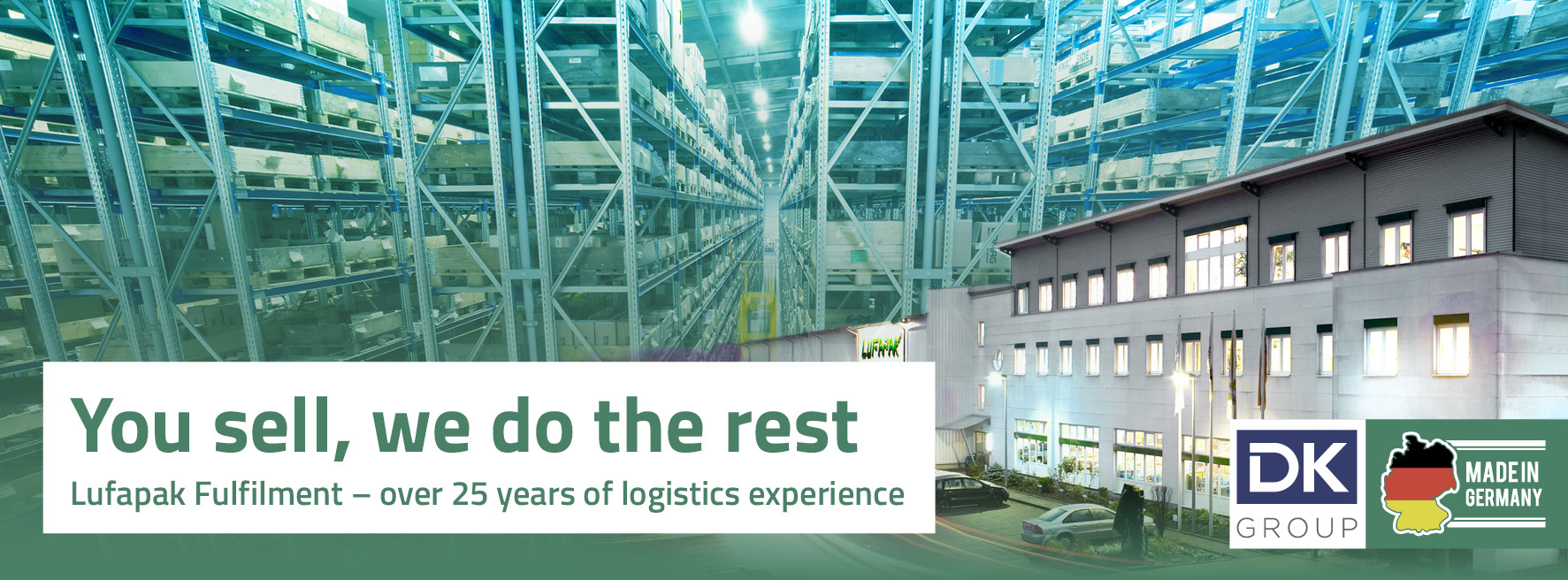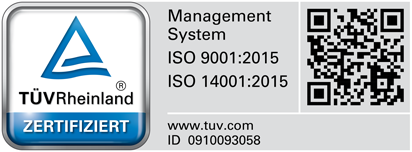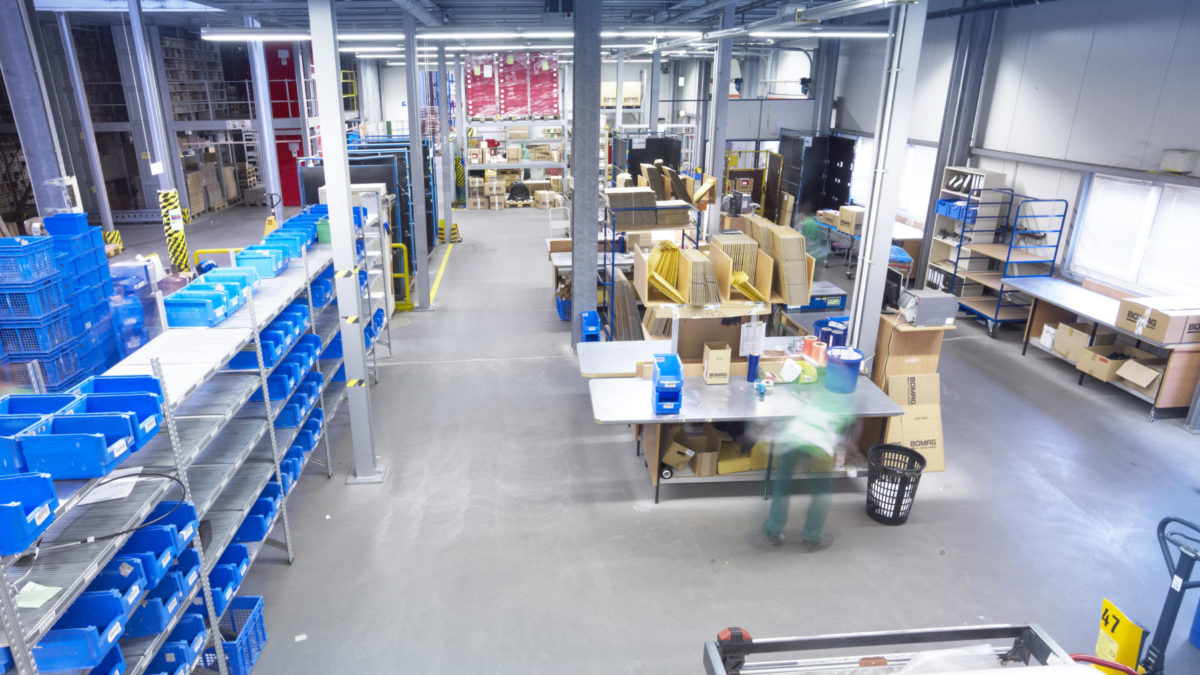sales@lufapak.de +49 2631/384-0 Contactform
Value Added Services what is it: more than just logistics
Value Added Services (VAS) extend the traditional offering of the logistics industry by going beyond the basic functions of transportation and storage. They offer customers premium upgrades and additional services that can improve the value chain at various points.
VAS include a variety of services that help ensure that logistics operations are not limited to physical transportation. Typical value-added services in logistics are, for example:
- Picking and packing: Processes such as picking and packing goods are carried out individually according to customer specifications in order to make shipping as efficient and customer-specific as possible.
- Labeling: This includes the application of barcodes, security labels or customer-specific labels that are necessary for further distribution and identification.
- Returns management: This involves the optimized handling of returns, which both increases customer satisfaction and facilitates the reintegration process of the goods.
- Shelf service: Some logistics companies also offer services in the area of shelf maintenance in retail, which optimizes the presentation of products and replenishment.
- Kitting and personalization: The assembly of product kits or the specific adaptation of products to customer requirements is an additional service that generates added value.
- Quality control: Additional services can also consist of carrying out quality checks on goods before shipping.
- Repackaging and product destruction: At the customer’s request, goods can be repackaged or disposed of properly.
- Cross-docking: Goods are transferred directly from the receiving warehouse to the shipping area without being stored in between, which saves time and money.
VAS enable companies to differentiate themselves in a highly competitive market by offering their customers a comprehensive service package tailored to their needs. They also help to increase efficiency in the supply chain, as outsourcing these additional services to specialized logistics partners conserves internal resources.
Product- vs. process-oriented value added services
Value-added services in the logistics sector can basically be divided into two categories in terms of their impact: product-oriented and process-oriented value-added services. The distinction lies in the way in which they generate added value – either by directly changing or supplementing the product itself or by optimizing and adapting the logistics processes.
Product-oriented value-added services
These are services that add a direct physical or functional benefit to the actual product. They modify the product or enhance its properties in order to better meet customer requirements. Examples of this are

- Finishing: This includes services such as painting, printing or engraving products to improve their appearance or functionality.
- Assembly: The assembly of product components into a finished product, often directly in the logistics center, provides the customer with a product that is ready for immediate use.
- Quality control: Inspections and tests carried out on the product itself to ensure that it meets quality requirements.
- Packaging: This is the assembly of products into sets or the addition of accessories or information materials to products.
- Personalization: Customization of products, for example through labeling or special packaging tailored to the end customer.
Process-oriented value-added services
This category includes services that improve the efficiency and effectiveness of logistics processes but do not directly change the product itself. These services increase value by optimizing processes and thus indirectly offer added value for the customer. Examples of this are
- Inventory management: Extended services for monitoring and optimizing stock levels to ensure product availability.
- Order fulfillment: The efficient processing of customer orders, from receipt of the order to shipment of the goods.
- Track and trace: Advanced tracking systems that allow customers to locate their shipments in real time.
- Returns management: Services relating to the processing of returns, including inspection, repair, replacement or restocking.
- Supply chain consulting: analyses and consulting services to optimize the entire supply chain, from the manufacturer to the end customer.
The choice between product-oriented and process-oriented VAS depends heavily on the individual needs of the customer and the nature of the product. While product-oriented services are aimed directly at the product, process-oriented services focus on refining the processes surrounding the product. In practice, combinations of both types of service are often found in order to offer maximum benefit.
The added value of VAS for companies and customers
Value Added Services offer numerous advantages for both companies and customers.
Advantages for companies
- Differentiation from competitors: Companies can set themselves apart from the competition by offering unique additional services. This makes it more difficult for customers to compare offers purely on price, which increases the focus on added value.
- Building customer relationships: Targeted VAS that are tailored to customers’ needs creates a stronger bond with the company, as customers return not only for the product, but also for the additional service.
- Increasing the perceived value: Additional services increase the perceived value of the offer for customers and can therefore increase their willingness to pay.
- Generating customer satisfaction: High-quality VAS can improve customer satisfaction and experience, leading to positive reviews and referrals.
- Increasing sales: Additional services can generate new sources of revenue and thus increase overall sales.
- Supply chain efficiency: Optimizing the supply chain through VAS such as inventory management and order fulfillment can lead to cost savings.
- Long-standing expertise: Providing specialized VAS can highlight a company’s expertise and raise its profile as an expert in the industry.
Advantages for customers
- Unique customer benefits and experiences: VAS enable companies to offer customized solutions that are precisely tailored to customers’ needs and wishes.
- Comfort and convenience: Services such as assembly, personalization or immediate product availability save the customer time and effort.
- Added value: VAS often offer additional benefits beyond the core product, such as extended warranties or free updates.
- Transparency and trust: Track-and-trace services as well as consistent quality controls can promote trust in the brand and its products.
- Flexibility and success in the market: Especially in logistics, VAS such as flexible delivery options or returns management can help customers to act more efficiently.
VAS therefore create a win-win situation for both sides – providers and users – by contributing to the company’s added value on the one hand and strengthening customer satisfaction and loyalty on the other.
Building strategic partnerships through value-added services
Strategic partnerships between logistics service providers and their customers are significantly promoted by value-added services:
- Increasing customer satisfaction: By offering customized VAS, such as picking, packing, labeling, returns management and shelving services, logistics service providers increase customer satisfaction. As a result, customers are more inclined to maintain long-term business relationships.
- Reducing costs: Some VAS, such as outsourcing packaging or warehousing, can help to reduce overall costs in the logistics process. Cost savings can thus be passed on to the customer, which fosters a stronger partnership.
- Increasing efficiency: Through effective VAS such as inventory management or time-controlled deliveries, logistics service providers can improve the efficiency of their customers’ supply chain. An efficient supply chain is crucial to the success of many businesses and therefore strengthens the relationship with the logistics partner.
- Adaptability and scalability: VAS enable customers to react flexibly to market changes. Logistics service providers that offer customized and scalable VAS are valuable partners for growing companies.
- Building trust: By providing transparency and control in services such as track-and-trace, logistics service providers increase their customers’ confidence in the reliability and safety of delivered goods.
- Specialization and expertise: VAS offer logistics service providers the opportunity to establish themselves as experts in specific areas such as kitting, blister packs or personalization. This expertise makes them indispensable partners for their customers.
How value-added services are transforming the logistics industry
VAS have already begun to change the logistics industry for good and we expect them to continue to have a significant impact in the coming years.
Personalization and customer orientation
VAS offer logistics service providers the opportunity to tailor their services more closely to the individual needs of their customers. This includes personalized packaging, specific labeling or customer-specific storage solutions. This trend towards personalization is expected to increase further, as it helps to build strong customer loyalty and increase customer satisfaction.
Technology-driven optimization
The ongoing digitalization and automation within the logistics industry is leading to a more efficient provision of VAS. Smart technologies such as artificial intelligence (AI), machine learning and robotics could play a key role in optimizing warehousing, inventory management and packaging processes. For example, algorithms for inventory management can recognize patterns in advance and thus optimize logistics chains.
Sustainability
One of the key trends that will impact VAS is the growing drive towards sustainable business practices. VAS such as environmentally friendly packaging, improved returns management and resource-efficient delivery options will become increasingly important. Logistics processes will not only become more efficient, but also more environmentally friendly.
Seamless integration into e-commerce
VAS are a critical factor in improving the online shopping experience. From fast, reliable delivery options to customer-friendly returns services, it all helps to build customer loyalty and encourage repeat purchases.
Global reach with local nuances
As companies expand globally, they also need to meet local requirements. VAS enable logistics service providers to offer globally standardized services, but adapt them locally to meet legal requirements or accommodate cultural nuances.
Expanding the range of services
Logistics companies will continue to expand their range of services in order to offer one-stop solutions. This may include additional services such as product assembly, quality checks, special security features or extended tracking and tracing services.
Contact us now and get advice


